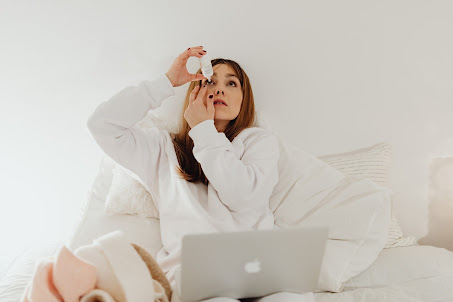Why is eye care important? Jesus' words in Matthew 13:16: "Blessed are those who see!" blessed! It is fortunate to have healthy eyes and to be free of eye conditions such as age-related macular degeneration (AMD).
AMD is a common eye disease that affects the central part of the retina, causing vision loss or damage. Smokers, people with high blood pressure, and people in their prime are at risk of developing this condition. That is why it is best to start your eye care with a healthy, balanced diet.
In Genesis 1:29, God said, "Look! I have given you every seed-bearing plant on earth, and every fruit tree for your food." Verse 31 says, "God saw what he had made. It was all very good!"
The Bible, believe it or not, says that fresh fruits and vegetables are good for human health. Vitamins A, C, and E found in fresh fruits and green leafy vegetables are important for eye nutrition. Vitamin A is good for the cornea, vitamin C helps maintain healthy capillaries. In the retina, vitamin E protects eye cells from free radical damage.
Copper and zinc are also important for eye nutrition. Copper-rich foods, such as whole grains and oysters, are essential for proper eye structure development. Eating seafood, eggs, and tofu provides zinc, which helps absorb nutrients and drop waste.
Omega-3 fatty acids from onions and tuna are also good for the eyes. It helps reduce the risk of developing macular degeneration and prevents other eye diseases such as dry eye syndrome.
A visual diet is also about what not to eat. Some foods to avoid for eye protection are processed meats and processed foods because of their sodium content. Which contributes to hypertension, which can lead to macular degeneration. Cooked foods, especially those fried in trans fats, increase the level of bad cholesterol in the body, which can cause various eye diseases.
Remember to keep yourself hydrated, but drinks like sugary drinks, and alcohol. And caffeine is not important for eye nutrition. Remember that the best way to hydrate yourself is to drink water.
Also, a healthy diet, includes regular exercise, adequate rest, a healthy body weight, and quitting smoking. Wearing the right glasses, and having your eyes checked by a doctor. It's all part of proper eye care.
When you eat healthy, exercise, and get good rest, you are more likely to achieve a healthy body weight. It keeps blood pressure under control, cholesterol levels under control. And the risk of developing diabetes, which is a lower risk of vision problems.
Eye care also includes keeping your hands clean when wearing contact lenses. Wear sunglasses when out in the sun and wear appropriate safety glasses to prevent eye damage.
You should have your eyes checked by a professional at least once a year. If you're diagnosed with glaucoma, learn about risk factors and possible treatments. Some eye diseases cannot be cured if they exist, and the condition cannot be reversed. No matter how strict the eye nutrition diet you follow.


Comments
Post a Comment